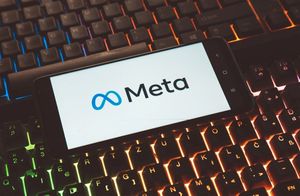Four in 10 millennials and Gen Zers turn to social media for education on workplace benefits
Equitable, a leading financial services organization and principal franchise of Equitable Holdings, Inc. (NYSE: EQH), today announced new findings from a survey of more than 1,000 consumers to help uncover the latest financial trends that are top of mind for Americans.
Equitable’s survey revealed that more than half of Americans (53%) eligible for workplace benefits through their employer regret their choices during last year’s open enrollment period. The top reasons cited include: failing to adjust their benefits to match their lifestyle changes (25%), forgetting to make changes to their benefit selections by the deadline (20%), and not understanding the options available or the benefits they selected (19%).
The survey also uncovered that the average amount of time workers spent selecting their benefits during open enrollment last year was 30 to 60 minutes. Typically, open enrollment is a two-week window at most workplaces. For comparison, the average American spends approximately two hours on social media every day.1
Interestingly, more American workers are turning to social media for education on their workplace benefits, which could impact how employers and benefits providers help prepare employees for open enrollment in the future. The survey found that nearly one in four (24%) use social media platforms for education on workplace benefits. This trend was highest among younger generations, with approximately four in 10 Gen Zers (43%) and millennials (37%) turning to social media for help gathering information as they make decisions on their workplace benefits during open enrollment.
"Our research suggests that many American workers are second-guessing their benefits selections,” said Stephanie Shields, Head of Equitable’s Employee Benefits business. "With open enrollment approaching for millions of households this fall, it's critical that workers review and understand their benefit options, stay mindful of deadlines and consider how recent life changes might influence their benefit choices. Also, if workers need help, they should ask their employer's benefits teams or consult a financial professional, who may be able to address general questions and provide some level of guidance."
Equitable’s survey also found that most employees have a knowledge gap regarding voluntary benefits, which are supplemental health solutions that can help pay for out-of-pocket expenses not covered by major medical and other insurance. As Americans increase their understanding of voluntary benefits, many begin to see their value. For example, the survey found that nearly six in 10 respondents indicated they were not confident in their understanding of hospital indemnity insurance. However, once they learned more about the supplemental health benefit, 87% of respondents considered hospital indemnity insurance to be valuable.
The survey also revealed that 60% of Americans would struggle to cover the total costs of an unexpected hospital stay. On average, the cost of a five-day hospital stay in the U.S. for someone who is insured amounts to approximately $14,000.2 When asked what sources they would use to cover this unexpected health expense, three-quarters of Americans (75%) said they would have to set up a monthly payment plan, nearly one in five (18%) said they would use their credit card, and 8% would choose to take a hardship withdrawal from their retirement savings account.
The survey results also reinforce the central role that employers play in helping their employees learn and understand their workplace benefits. More than half of employees (53%) cited their reliance on materials or information sessions provided by their employers to help them make decisions during open enrollment. Notably, baby boomers (67%) and Gen X (60%) are more likely than younger generations to use the materials and information provided by their employers.
When it comes to guidance, more than one-third (35%) of American workers turn to financial professionals for support when selecting their benefits during open enrollment, with 43% of millennials and Gen Z relying on them more than older generations.
“Employee benefits play an important role in the financial lives of American workers and their families by protecting their savings from unexpected health events that could otherwise cause financial strain,” explained Shields. “While most workers rely on their employers for help during open enrollment, it is encouraging to see that younger generations are open to guidance from financial professionals on how workplace benefits fit into a holistic financial plan.”
About the survey:
The survey was conducted by an independent, global consumer and B2B panel provider. Respondents include 1,000 U.S. adults (ages 18 and older), with the total survey population representative of U.S. demographic data. The online survey was fielded from August 19, 2024, through August 24, 2024. Survey participation was anonymous.
About Equitable:
Equitable, a principal franchise of Equitable Holdings, Inc. (NYSE: EQH), has been one of America’s leading financial services providers since 1859. With the mission to help clients secure their financial well-being, Equitable provides advice, protection and retirement strategies to individuals, families and small businesses. Equitable has more than 8,000 employees and Equitable Advisors financial professionals and serves 3 million clients across the country. Please visit equitable.com for more information.
Reference to the 1859 founding applies specifically and exclusively to Equitable Financial Life Insurance Company (NY, NY).
GE-7064887.1 (10/24) (exp.10/26)
1 Backlinko, 2024. Accessed from Forbes Advisor, “Top Social Media Statistics And Trends Of 2024.”
2 KFF (formerly known as Kaiser Family Foundation), 2021.
View source version on businesswire.com: https://www.businesswire.com/news/home/20241015329395/en/
Contacts
Media Contact:
Monique Freeman
(212) 314-2010
mediarelations@equitable.com






